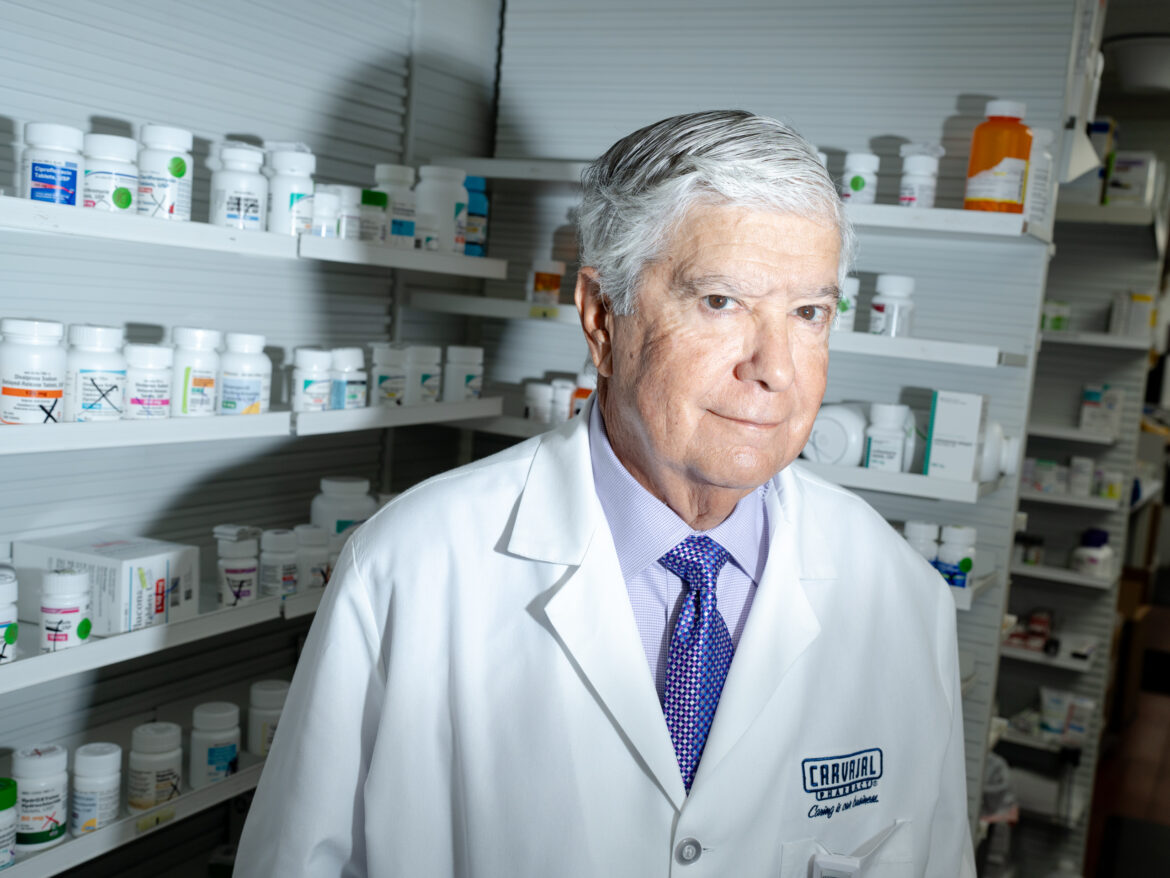Protecting Local Pharmacies: Challenges and Legislative Efforts in Texas
Raymond Carvajal, alongside his brother Charles, established their first independent pharmacy over five decades ago in San Antonio. Situated close to the historic Mission San Jose, Carvajal Pharmacy has become a significant establishment for the South Side community, known for its personal service and commitment to local residents.
Throughout the years, the Carvajal family successfully expanded their business to six locations, including outlets at Ingram Mall and near Crockett Park, with their nephew Mark becoming a part owner later on. However, recent challenges have emerged that threaten the future of these neighborhood pharmacies.
Concerns Over Pharmacy Benefit Managers (PBMs)
According to Raymond Carvajal, the increasing difficulty in maintaining their pharmacies is largely due to the actions of pharmacy benefit managers, commonly referred to as PBMs. These entities, which administer prescription drug benefits for health insurers and government programs such as Medicare and Medicaid, have been reportedly directing business away from independent pharmacies toward larger retail chains.
On a recent Wednesday, Carvajal joined over 400 pharmacy professionals at a rally in Austin, advocating for legislative measures to safeguard small, neighborhood pharmacies against the influence of PBMs. During the event, participants emphasized the need for transparency in PBM contracts and fair compensation practices for pharmacy services.
The Role of PBMs
Originally emerging in the 1950s and 1960s to help insurers keep track of an increasing volume of prescriptions, PBMs have evolved significantly. They now control the negotiation of drug prices, the administration of covered medication lists, and pharmacy network restrictions. Today, the three largest PBMs—CVS Health (Caremark), Cigna (Express Scripts), and UnitedHealth Group (OptumRx)—command approximately 85% of the market.
Carvajal noted that profit margins for PBMs arise from their pricing negotiations with drug manufacturers, often at the cost of independent pharmacy viability. “Every week, one pharmacy in Texas closes due to these PBMs,” he stated, referencing a Texas Pharmacy Association report that highlights the adverse impact on local communities, particularly in rural areas.
Escalating Costs and Community Impact
Reports from the Texas Pharmacy Association indicate that PBMs have played a significant role in driving up prescription costs while contributing to pharmacy closures. A January report from the Federal Trade Commission (FTC) revealed that many specialty generic drugs sold at affiliated pharmacies of the major PBMs were marked up significantly, sometimes by thousands of percent.
The FTC has found that these PBMs often reimburse their own affiliated pharmacies at higher rates than those of independent ones for virtually every specialty generic drug analyzed, creating an uneven playing field. The repercussions for patients are staggering, with reports indicating that nearly 30% of surveyed Americans have skipped doses or rationed prescriptions due to high costs.
RoxAnn Dominguez, CEO of the Texas Pharmacy Association, remarked, “PBMs dictate lower reimbursement rates for neighborhood pharmacies but then often pay their own pharmacies more.” This dynamic, she noted, can have dire consequences for both pharmacies and the communities they serve.
Proposed Legislative Measures
In response to these challenges, the Texas Pharmacy Association is backing eight legislative bills aimed at reforming PBM practices. Among these are:
- Senate Bill 1236 and House Bill 3317, which would require transparency and fairness in PBM contracts.
- Senate Bill 1354 and House Bill 2978, aimed at prohibiting below-cost reimbursements.
- Senate Bill 1122 and House Bill 5102, to ensure that PBM regulations apply uniformly across the state.
- Senate Bill 493, safeguarding pharmacists’ ability to inform patients of cheaper cash prices for prescriptions.
- House Bill 4533, mandating transparency in reimbursement methodologies for Medicaid expenditures.
Carvajal expressed hope that these reforms will take effect soon, stating, “It’s going to take a year, maybe a little more, but at least you’ll start lowering the cost of medications.” With community pharmacies under continuous threat, these legislative measures aim to offer necessary protections against anti-competitive practices by PBMs.

